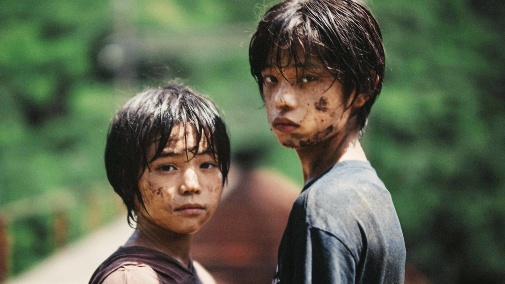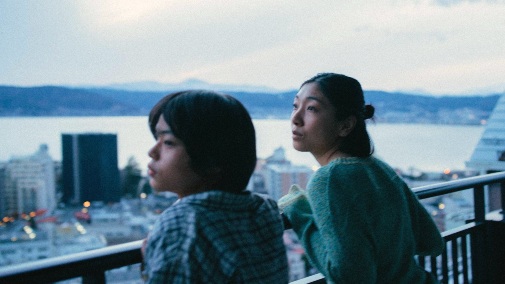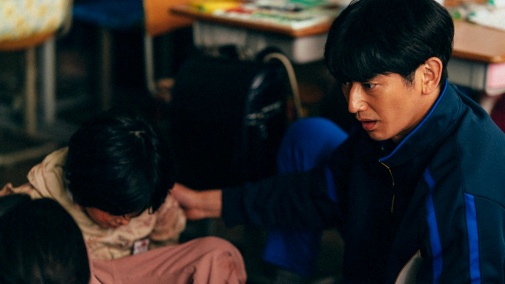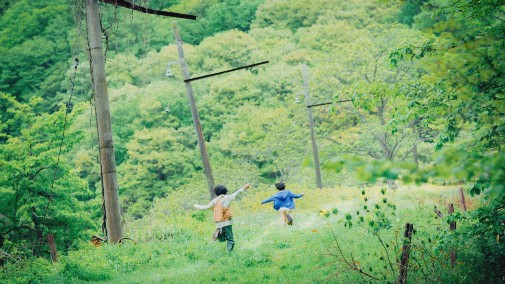TIFF ’23: In “Monster,” we’re all alone and that’s beautiful
 Sunday, September 10, 2023 at 11:30PM
Sunday, September 10, 2023 at 11:30PM 
Part of being alive is coming to grips with some harsh truths intrinsic to the human condition. For instance, we’ll never know the other, not entirely, no matter how hard we try. Even mothers can’t hope to fully grasp their children’s interiority, each human being a galaxy unto themselves. You can either fight against that notion in fruitless despair or accept it. We’re all alone, trapped in the mystery of ourselves, but so is everyone else. Reach out, and you’ll come close to the infinite unknown. Look at it right, and you’ll see beauty beyond belief.
The cinema of Japanese master Hirokazu Kore-eda has long reflected on such ideas, but Monster is still a high mark of cinematic compassion in his filmography. Penned by Cannes Best Screenplay-winner Yuji Sakamoto and set to the sound of Ryuichi Sakamoto’s last score, this film broke my heart…

Divided into three roughly 40-minute-long chapters, Monster is simple and unfathomably complicated. Like the universe, it’s constantly expanding. You try to wrap your mind around the film’s mystery, holding it with neat absolutes, but it will escape, time and time again. Each scene adds new meanings and truths to the pile until you have a monument of contradiction, misunderstandings and paranoia ready to collapse in mudslide. Yet, to describe the picture as a puzzle would be erroneous. Monster has no final key to its enigmas, preferring to be a treatise on empathy instead.
Regardless of conclusions, it all starts in nocturnal blaze, a hostess bar burning in the middle of a sleepy town by the mountainside. The film will return to this moment, as it does many others, considering the event through different perspectives in not-quite Rashomon fashion; the fire is but a minor detail in the broad tapestry of this story. The fire is first presented as a distant spectacle for single mother Saori (Sakura Ando, Shoplifters) and her adolescent son Minato.
The widow will be our entry point into Monster, always calling for a son who rarely answers back, a boy who’s been getting moody and distant. His behavior is increasingly inexplicable. One rainy night an innocent conversation provokes a bizarre reaction in the boy, who opens the car door and throws himself out. When his mother confront him he makes a bizarre pronouncement about having a pig’s brain rather than a human’s. Watching Sakura Ando at this moment is unnerving, the actress’ shocked stillness suggesting a parent’s worst nightmare unfolding in real-time.
Minato lets slip out the name of a teacher – Mr. Hori – giving his mother a place to redirect her anxieties. And so, she sets off to the school, prompting an investigation into the educator’s actions and finding little more than rehearsed apologies and politeness on the precipice of absurdity. Saori sees only bureaucrative inhumanity when she speaks to school officials.

It’s easy to identify some of the director’s preferred themes in Saori’s story and its follow-up, Mr. Hori’s side of things. One recognizes Kore-eda’s penchant for investigating the porous barrier separating right from wrong. Look no further than the moral dilemmas proposed by Broker, Shoplifters, and The Third Murder. For greater accuracy, you could say the director is interested in how people try to define these ideas in strict binaries, growing sanctimonious and suspicious in ways anathema to the messiness of humanity. Systems follow these same failures, built by people but incapable of dealing with the reality of being a person.
Another destructive dividing line incompatible with the actuality of being human is the title itself, the word monster. Throughout the film, we encounter it in many contexts, though its weapon-like qualities remain constant. It’s the death of empathy in a word, a wall erected between you and your ‘enemy.’ We call monsters what we repudiate or don’t understand, wanting to distance them from us and inoculate ourselves from the notion we could ever do monstrous things. Call someone a monster, and you no longer need consider their humanity. The word is the end of a conversation, never the start. In Kore-eda and Sakamoto’s three-pronged narrative, everyone’s a monster and nobody is, though one boy carries the word on his bruised back, so heavy he shall transform it in a game. It’s that or death.
He’s Yori Hoshikawa, a bullied tudent at Minato’s school. Small and sensitive, he’s called an alien by his peers and a monster at home, internalizing those names while his face rarely loses a cheery smile. In the picture’s third act, we discover a friendship between these two boys, a bond made secret by peer pressure and an inability to articulate feelings. I won’t reveal much more since some surprises should be left intact for the reader. So, the last I’ll say of the narrative is that it’s much kinder than first presumed, Kore-eda’s love for his characters plain to see, and his victory of the Queer Palm at Cannes this past summer eminently justified.
But of course, Monster is more than its story and ideas, ideals, tonalities. As ever, with this director, the cast is superlative, adult and underage thespians alike. Indeed, some stray storylines that never quite coalesce feel impossible to excise, thanks to the dimensions their actors reveal. There’s the music, simple and in harmonious song with the sound design. Finally, Hirokazu Kore-eda’s penchant for finding the perfect detail to cut to, uncovering immense meaning, remains unrivalled. Glimpses of troubled domesticity -- a muddy window that won’t divulge its secrets, a caress, a dissonant horn in the distance -- are all reminders of how expansive the cosmos of other people is, beckoning wonder in place of terror. They’re empathy crystalized in the form of cinema.

Between its Cannes bow and TIFF screening, Monster picked up American distribution. Well Go USA Entertainment will release it for stateside audiences.



Reader Comments (2)
I’m so impressed by your TIFF coverage.
You find fascinating films, have something thoughtful to say that does justice to the movie, which you manage to organize into writing, and publish within one day.
Wow.
McGill -- Thank you so much for your kind words. I'm glad someone's reading and enjoying my coverage. Also, as far as organizing my writing goes, Nathaniel deserves a lot of the credit for editing all my ramblings.